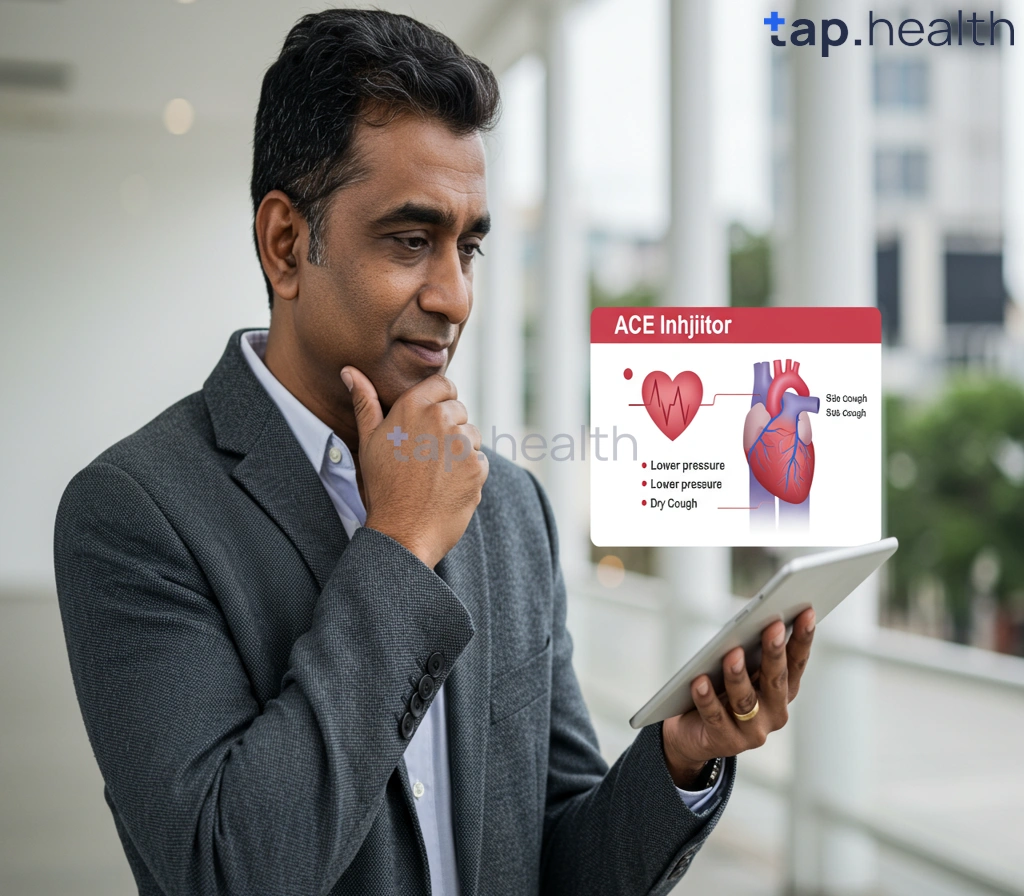Table of Contents
- Top-Rated Diabetes Management: U.S. News & World Report
- Best Diabetes Management Strategies for 2024
- U.S. News & World Report’s Top Diabetes Programs
- Effective Diabetes Management: Expert-Backed Strategies
- Guide to Top-Rated Diabetes Care: U.S. News
- Frequently Asked Questions
- References
Living with diabetes can feel like navigating a complex maze, but you don’t have to do it alone. Finding the right strategies for effective management is key to a healthier, happier life. This blog post dives into the Top-Rated Diabetes Management Strategies: U.S. News & World Report, breaking down the expert-recommended approaches highlighted in their recent findings. We’ll explore practical tips, evidence-based techniques, and resources to help you take control of your diabetes. Ready to simplify your diabetes journey and improve your well-being? Let’s get started!
Top-Rated Diabetes Management: U.S. News & World Report
Understanding the Global Landscape
Globally, diabetes is a significant health challenge, with over 75% of people with diabetes residing in low- and middle-income countries, as highlighted by the International Diabetes Federation’s Diabetes Atlas. This statistic underscores the urgent need for accessible and culturally relevant diabetes management strategies, particularly in regions like India and other tropical countries. These regions often face unique challenges, including limited healthcare access, socioeconomic factors, and dietary habits that can impact diabetes control.
Prioritizing Lifestyle Modifications
Effective diabetes management hinges on lifestyle changes. In India and tropical countries, this means focusing on incorporating easily accessible, locally-sourced foods into a balanced diet. This includes emphasizing fresh fruits, vegetables, and whole grains, while limiting processed foods, sugary drinks, and refined carbohydrates. Regular physical activity, even short walks throughout the day, is crucial. Consider incorporating traditional practices like yoga and mindful eating to improve overall well-being and adherence to a healthy lifestyle. For more specific tips, check out our guide on 10 Proven Tips to Effectively Manage Diabetes.
Seeking Professional Guidance
Regular check-ups with healthcare professionals are paramount. Early detection and consistent monitoring of blood sugar levels are critical for preventing complications. In many regions, community-based diabetes education programs offer valuable support and resources. It’s essential to actively engage with these programs and seek advice on culturally appropriate diabetes management techniques.
Empowering Communities
Ultimately, effective diabetes management in India and tropical countries requires a multifaceted approach. This includes improving healthcare access, promoting public awareness campaigns, and fostering community-based support systems. By working together, we can empower individuals and communities to effectively manage diabetes and improve their quality of life. Learning more about effective diabetes management strategies can significantly improve outcomes.
Best Diabetes Management Strategies for 2024
The global burden of diabetes is staggering. The International Diabetes Federation projects a dramatic increase in cases, from 536.6 million in 2021 to a projected 783.7 million by 2045, significantly impacting populations in India and tropical countries. Effective diabetes management is crucial, especially in regions with high prevalence and limited resources. This necessitates a focus on accessible and culturally relevant strategies.
Lifestyle Modifications: The Cornerstone of Care
Dietary changes are paramount. Emphasizing whole grains, fruits, vegetables, and lean proteins, while limiting processed foods, sugary drinks, and unhealthy fats, is vital for blood sugar control. Incorporating traditional, locally available, and nutritious foods within a balanced diet can improve adherence and outcomes. Regular physical activity, even short bursts of exercise throughout the day, significantly improves insulin sensitivity. Cultural considerations, such as incorporating traditional forms of exercise, can enhance engagement.
Medication and Monitoring: Essential Tools
While lifestyle changes are fundamental, many individuals require medication. Oral hypoglycemic agents and insulin therapy are commonly prescribed, with choices tailored to individual needs and circumstances. Regular blood glucose monitoring, alongside HbA1c testing, allows for effective tracking of treatment efficacy and timely adjustments. Access to affordable testing supplies and regular check-ups is crucial in resource-constrained settings.
Community Support and Education: Empowering Individuals
Effective diabetes management extends beyond individual efforts. Community-based programs offering education, support groups, and culturally sensitive resources can significantly improve outcomes. These programs should address prevalent misconceptions and provide practical guidance tailored to the specific needs of the Indian and tropical populations. Early diagnosis through accessible screening programs is also paramount in curbing the progression of diabetes and its complications. Prioritizing these strategies will be crucial in mitigating the rising impact of diabetes in these regions. For those facing the challenges of managing diabetes as they age, Managing Diabetes as You Age: Challenges and Solutions offers valuable insights. Avoiding common mistakes is also key; you can learn more by reading 5 Common Mistakes People Make in Managing Diabetes.
U.S. News & World Report’s Top Diabetes Programs
Diabetes affects millions globally, with a significant impact on India and tropical countries. In the U.S., approximately 2 million people live with type 1 diabetes, including about 304,000 children and adolescents. Learn more about these statistics. This staggering number highlights the critical need for effective diabetes management programs. U.S. News & World Report’s rankings provide a valuable resource for identifying top-tier facilities dedicated to providing comprehensive care.
Navigating Diabetes Care in India and Tropical Countries
While U.S.-based programs might offer advanced technologies, the key to successful diabetes management remains consistent in all regions: early detection, lifestyle modifications, and ongoing medical supervision. In many Indian and tropical countries, access to specialized care can be limited. Therefore, prioritizing preventative measures, such as regular checkups and maintaining a healthy diet, is paramount. Understanding your family history of diabetes is also crucial, as genetic predisposition significantly increases risk. For those looking to make dietary changes, 20 Best Foods for People with Diabetes – Tap Health offers helpful guidance.
Actionable Steps for Effective Diabetes Management
Individuals in India and tropical countries should focus on readily available strategies. This includes adopting a diet rich in fresh fruits, vegetables, and whole grains, alongside regular physical activity tailored to individual abilities and the climate. Seeking guidance from local healthcare professionals familiar with the region’s specific challenges is essential. They can provide personalized advice and connect you with resources available within your community.
Finding Support and Resources
Effective diabetes management requires a holistic approach. Finding reliable support networks, whether through local diabetes associations or online communities, is crucial for maintaining motivation and adherence to treatment plans. Remember, managing diabetes effectively is a journey, not a destination, and seeking help is a sign of strength, not weakness. Explore resources available in your specific region to build a personalized plan for long-term health and well-being. It’s also important to understand the possibilities and limitations of treatment; Can You Get Rid of Diabetes? – Tap Health explores this important question.
Effective Diabetes Management: Expert-Backed Strategies
Diabetes affects a significant portion of the global population, with a substantial number of individuals aged 20-64, representing 61% of those living with the condition according to the International Diabetes Federation. In Indian and tropical countries, specific challenges related to climate, lifestyle, and access to healthcare necessitate tailored management strategies. Effective diabetes management isn’t just about medication; it’s a holistic approach.
Prioritizing Dietary Habits
A balanced diet is crucial. Focus on whole grains, lean proteins, and plenty of fruits and vegetables. In warmer climates, incorporating locally sourced, seasonal produce can enhance both nutritional intake and affordability. Limiting processed foods, sugary drinks, and saturated fats is equally vital for all age groups, especially considering the high prevalence of diabetes among those aged 20-64 and 65+. Remember, mindful eating practices can significantly impact blood sugar control.
Lifestyle Modifications
Regular physical activity is key. Aim for at least 150 minutes of moderate-intensity exercise per week. This could involve brisk walking, yoga, or other activities easily integrated into daily routines. Even small changes, like taking the stairs instead of the elevator, can make a difference. In hotter climates, consider adjusting exercise timing to avoid peak heat. Prioritizing sleep and managing stress are also crucial components of a healthy lifestyle for all age groups affected by diabetes. For more personalized strategies, consider reading our guide on Personalized Diabetes Control: Your Key to Better Health.
Seeking Professional Guidance
Regular check-ups with your doctor and diabetes care team are essential for monitoring blood sugar levels, adjusting medication, and addressing any complications. Early detection and proactive management are particularly important for those aged 65+, who represent 39% of the diabetes population. Don’t hesitate to seek support from diabetes educators or community programs for personalized guidance and support tailored to your specific needs and geographical context. Regular monitoring and proactive management are paramount to prevent long-term complications. Managing cholesterol is also vital, and you can learn more about that in our article, How to Manage Cholesterol Levels with Diabetes?
Guide to Top-Rated Diabetes Care: U.S. News
Diabetes is a significant global health concern, impacting millions worldwide. In the U.S., the statistics are alarming: approximately 35 per 10,000 youths are diagnosed with diabetes. This underscores the urgent need for effective management strategies, particularly in regions like India and tropical countries where diabetes prevalence is also rising rapidly. Understanding and implementing top-rated diabetes care is crucial for improving health outcomes and quality of life.
Effective Diabetes Management Strategies
Effective diabetes management requires a multi-faceted approach. This includes maintaining a healthy diet low in processed foods and refined sugars, focusing on fresh fruits, vegetables, and lean proteins. Regular physical activity is vital; aim for at least 150 minutes of moderate-intensity exercise per week. Consistent blood glucose monitoring is essential for tracking progress and adjusting treatment plans as needed. This allows for timely intervention and prevents complications. In regions with limited access to healthcare, community support groups and educational programs can play a significant role in empowering individuals to manage their condition effectively. Many individuals find success through mindful eating practices and stress-reduction techniques like yoga or meditation. For information on supporting a healthy diet, consider exploring Safe and Effective Dietary Supplements for Diabetes Care.
Seeking Professional Guidance
Finally, regular consultations with healthcare professionals are paramount. Early detection and proactive management are key to preventing long-term complications associated with diabetes. For individuals in India and tropical countries, seeking advice from doctors familiar with the specific challenges and resources available within their region is crucial. Remember, effective diabetes management is a journey, not a destination, and ongoing support and education are vital for long-term success. Learn more about the prevalence of diabetes in the U.S. and how to access resources for better management. It’s also important to understand the link between diabetes and heart health; read more in Protect Your Heart from Diabetes: 5 Essential Steps.
Frequently Asked Questions
Q1. What are the most effective strategies for managing diabetes?
Effective diabetes management involves a combination of lifestyle changes and regular medical care. Lifestyle changes include eating a balanced diet rich in whole grains, fruits, vegetables, and lean proteins, and getting regular physical activity. Regular check-ups, blood glucose monitoring, and participation in community support programs are also crucial.
Q2. How can I improve my chances of early detection and prevent long-term complications?
Early detection is key to preventing long-term complications. Regular check-ups with your doctor, including blood glucose monitoring, are vital. Maintaining a healthy lifestyle through diet and exercise also plays a significant role.
Q3. What role does diet play in managing diabetes?
Diet plays a crucial role. Focus on a balanced diet emphasizing whole grains, fruits, vegetables, and lean proteins. Limit processed foods, sugary drinks, and unhealthy fats.
Q4. What are the challenges in managing diabetes, particularly in low- and middle-income countries?
Access to healthcare, resources, and community support programs can be limited in low- and middle-income countries, making diabetes management more challenging. Cultural relevance of management strategies is also critical.
Q5. What kind of community support is available for people with diabetes?
Community support programs offer valuable assistance. These programs often provide education, support groups, and resources to help individuals manage their diabetes effectively. Check with your doctor or local health organizations to find programs in your area.
References
- A Practical Guide to Integrated Type 2 Diabetes Care: https://www.hse.ie/eng/services/list/2/primarycare/east-coast-diabetes-service/management-of-type-2-diabetes/diabetes-and-pregnancy/icgp-guide-to-integrated-type-2.pdf
- What is Diabetes: https://www.medschool.lsuhsc.edu/genetics/docs/DIABETES.pdf
Meta Data
Meta Title: Diabetes Management Strategies | Top-Rated Guide
Meta Description: Master effective diabetes management strategies with our comprehensive guide. Discover top-rated tips, expert advice, and actionable steps to improve your health and well-being. Start your journey to better diabetes management today!
alt_text: Infographic: Top diabetes management strategies
url_slug: diabetes-management-strategies




